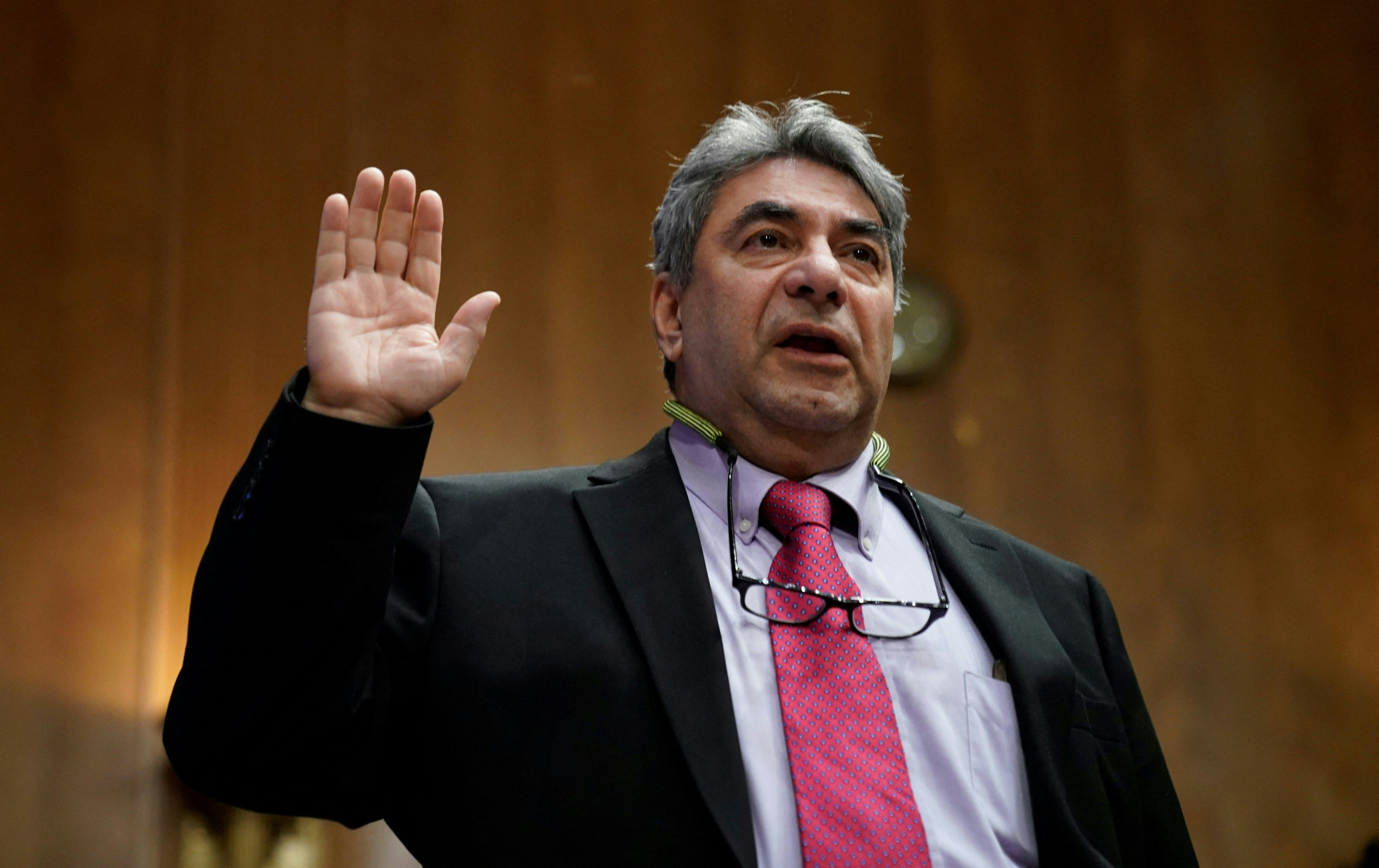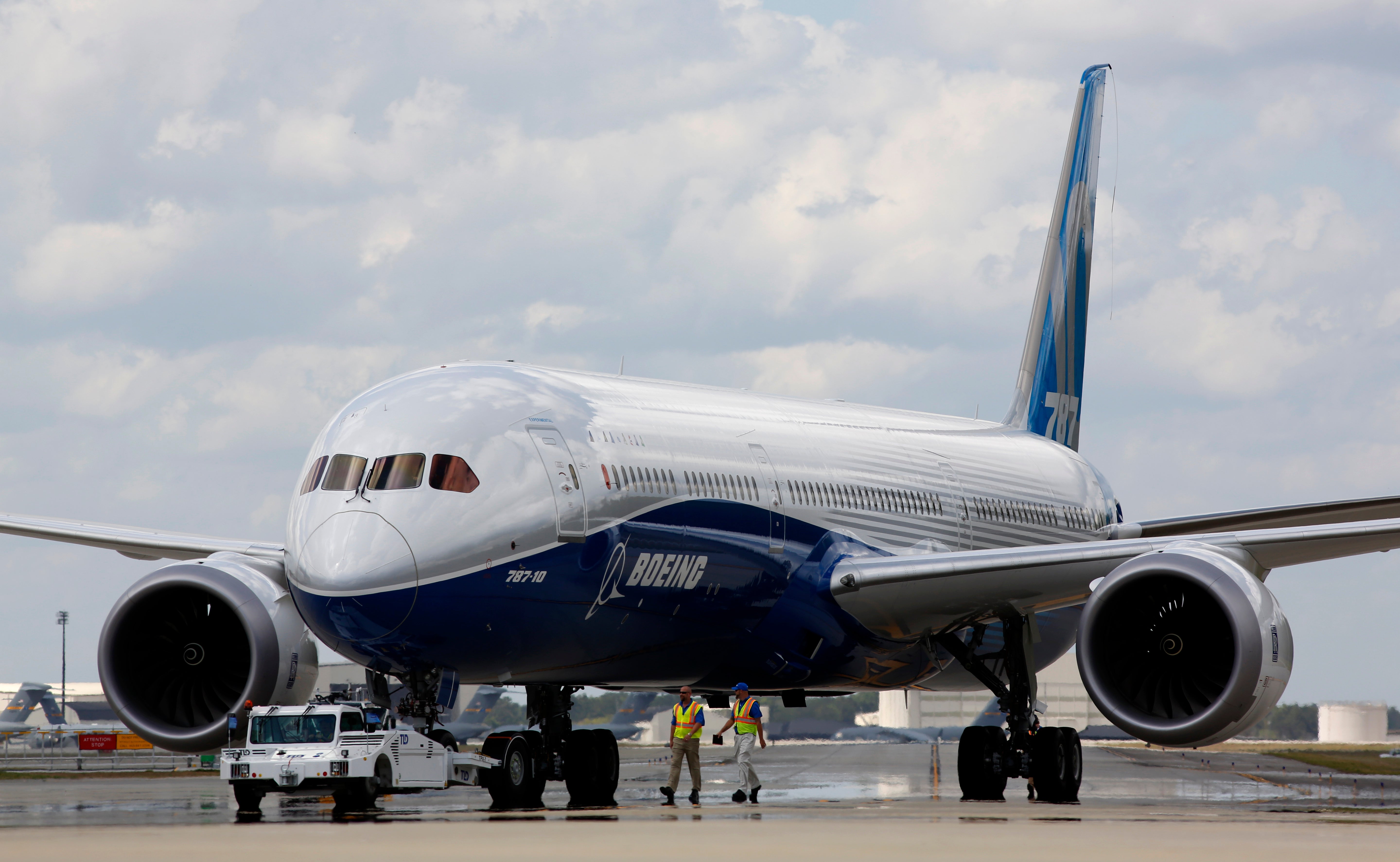Boeing whistleblower tells Senate he was threatened by boss after raising concerns about plane safety: ‘They know where you live’
Employees ‘hear safety is our number one priority, but what they see is that that’s only true as long as your production milestones are met,’ expert senate witness says
A Boeing whistleblower said at a senate hearing that he has faced threats and verbal abuse after he spoke up about safety issues at the planemaker.
Quality engineer Sam Salehpour was asked on Wednesday if there’s a “culture of retaliation” against whistleblowers at Boeing.
“Absolutely ... The only reason I have my job [is] because I had my attorneys, we filed [via] the whistleblower system before I spoke up,” he said.
Mr Salehpour added that he was once berated by his boss during a 40-minute phone call.
“They call you on your personal phone to let you know that they know where you live,” he said. “They know where you are. And they can hurt you.”
“The threats ... really scare me, believe me, but I am at peace,” he added. “If something happens to me, I am at peace because I feel like by coming forward, I will be saving a lot of lives.”

“We put Band-Aid over Band-Aid to resolve the problems and Band-Aid over Band-Aid doesn't cover it, maybe we need to consider some engineering fundamentals,” he said, before detailing extensive retaliatory behaviour, such as preventing Mr Salehpour from attending a doctor’s appointment and asking for a loyalty pledge in writing. The engineer also said he was afraid he may be physically harmed.
“My boss said, ‘I would have killed someone who said what you said in the meeting,’” Mr Salehpour testified before the Senate committee. “This is not safety culture when you get threatened by bringing issues of safety concerns.”
Boeing said in a statement to The Independent that “retaliation is strictly prohibited” at the company.
Mr Salehpour went public with his claims last week regarding his allegations about two of Boeing’s planes. The planemaker was the subject of extensive news coverage in January after a door panel blew off mid-flight of an Alaska Airlines 737 Max.
Appearing before the Senate Homeland Security and Governmental Affairs Committee’s investigations subcommittee on Wednesday, the engineer, who has been at Boeing for more than 10 years, said the company “is taking manufacturing shortcuts on the 787 programme that could significantly reduce the aeroplane’s safety”.
Mr Salehpour claimed that the problems concern changes in how different parts of the 787 Dreamliner are put together.
“I found gaps exceeding the specification that were not properly addressed 98.7 per cent of the time,” he said of measurements and joints on the 787s. “Inspection of the data shows that the debris ended up in the gaps 80 per cent of the time,” he added. “Again, you know you have debris in the gaps 80 per cent of the time.”
In a statement to The Independent after the hearing, Boeing said: “In 13 years of service, the global 787 fleet has safely transported more than 850 million passengers on more than 4.2 million flights. A 787 can safely operate for at least 30 years before needing expanded airframe maintenance routines.”
“Extensive and rigorous testing of the fuselage and heavy maintenance checks of nearly 700 in-service airplanes to date have found zero evidence of airframe fatigue ... We are fully confident in the safety and durability of the 787 Dreamliner,” the company added.
Asked if the planes are safe, Mr Salehpour said: “It’s like an earthquake. When that hits the building ... [it has] to be prepared to accommodate that type of shake-up ... Right now, from what I’ve seen, the aeroplanes are not being billed per spec, and per requirements.”

“I want to make clear that I have raised these issues over 3 years,” he said. “I was ignored. I was told not to create delays. I was told to shut up.”
In a separate hearing before the Senate Commerce Committee on Wednesday, three members of an FAA panel who released a report in February into Boeing’s shortcomings testified.
Dr Javier De Luis, a lecturer of Aeronautics and Astronautics at MIT who lost his sister in a Boeing crash in 2019, said there’s a disconnect “between the words that are being said by Boeing management and what is being seen and experienced by employees across the company. They hear safety is our number one priority, but what they see is that that’s only true as long as your production milestones are met”.
“And at that point, it’s push it out the door as fast as you can,” he added. “They hear speak up if you see anything that’s unsafe. But what they see is that if they do speak up, they get very little feedback and if they insist they may find themselves on the short end of the stick next time raises or bonuses or job transfers come up or even worse.”
“We found this disconnect to be present at almost all levels and at all works sites that we visited,” he added, arguing that the panel found a “lack of confidence” that complaints would be taken seriously, and “there was a very real fear of retribution and payback if you held your ground”.
The senior executive psychologist for safety, culture and human factors programmes within the NASA Office of Safety and Mission Assurance, Dr Tracy Dillinger, told the committee that “in one of the surveys, we saw 95 per cent of the people who responded ... did not know who the chief of safety was”.
Dr De Luis argued that “you can’t inspect your way to quality and you can’t inspect your way to safety because all it’s going to take is one slip and we’re back here again”.
“It’s got to be in the DNA of the people that understand that you don’t walk away from a door leaving it in an unsafe condition,” he added.
When asked if travellers are currently safe on Boeing planes, Dr De Luis said: “The safest place for a rocket is sitting on the pad. The safest place for an aeroplane is sitting in a hangar. The safest place for you and me is on our couch doomscrolling through Instagram.”
“And yet every day rockets launch, aeroplanes fly and we get up and we go and do something productive. Safety is always a trade,” he added. “... I’m worried about what’s happening on the Max. Now if I had to fly somewhere, because there was no other option, I would absolutely fly versus driving because I can make that trade.”
Boeing told The Independent, “We take the FAA review panel’s detailed assessment to heart and will act on their findings and feedback,” adding that the company has since 2020 “taken important steps to foster a safety culture that empowers and encourages all employees to raise their voice. We know we have more work to do and we are taking action across our company”.
Join our commenting forum
Join thought-provoking conversations, follow other Independent readers and see their replies
Comments
Bookmark popover
Removed from bookmarks